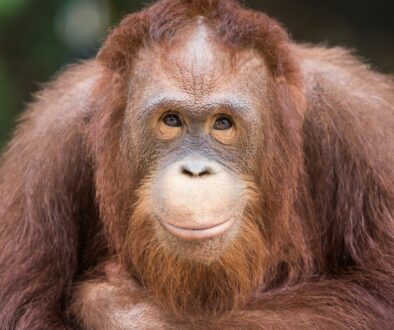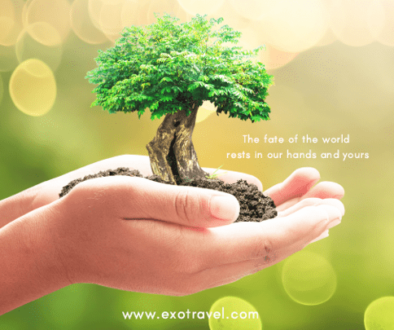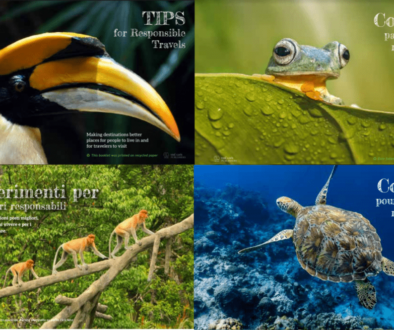EXO Travel & Elephants in Asia
In many EXO countries, Elephant Tourism is a big issue. A lot of tourists want to experience these impressive animals first hand and the typical Asian bucket list suggests to take selfies with these huge creatures, feed them, hug their trunks, wash them or even take a ride.
However, with growing demand and rising tourism numbers, awareness started spreading and the use of captive elephants in tourist attractions begun to be seen in a more critical light. Especially in western media, animal welfare conditions and the often cruel treatment of the animals became a strongly discussed topic.
With EXO Travel’s growing commitment to responsible tourism, elephant attractions quickly became a hot topic for us. After intensive research and lots of meetings with vets, elephant specialist, and animal psychologists, we realized how complex this topic actually is – and not at all as black and white as often portrayed in the media. With support of these specialist and different animal welfare organizations, such as World Animal Protection or EARS Asia, we developed our own elephant camp assessment, which not only takes into consideration the working and living conditions for elephants, but also for human staff, as well as the impacts on the environment and the surrounding communities.
Before starting the assessments, we have informed all camps about ideas and initiatives. Then, we schedule inspection trips where we spent up to a full day in the camp: we meet the camp owner/manager, the mahouts, the vets, and of course the elephants. We collect as much information as possible, take pictures, talk to staff and observe the animals in order to get the best picture possible. Back in the office, we evaluate all the information and write an extensive report on what we found out. We train EXO staff and guides and only recommend camps, which reach our own standard.
Did you know?
EXO Travel is part of a multi-sectorial working group focusing on the development of a common standard for elephant camps and promoting responsible elephant camp management. With about 4000 elephants in captivity in just Thailand, it becomes extremely important to encourage camp operators to adapt their business procedures, while at the same time educating visitors and tourists.
For us at EXO, it is important to collaborate with the elephant camps and convince them to implement responsible management strategies. We want to work with the camps to improve working conditions for staff and animals and we hope to have an impact on the elephant tourism industry. When organized responsibly, visiting elephants and spending time with them can be an incredible experience!
What do we look for?
To give you a better idea of what we are looking for during our elephant camp assessments, here are just a few examples of the questions we ask:
- What is the diet of the elephants?
Nutrition is very important for elephants; they have a very sensitive digestive system and any digestion problems can threaten the elephants’ health extremely! - Do they have constant access to food?
They need eat up to 250kg per day! - How long is the elephant’s chain and do they get the possibility to roam freely for a while?
Chaining an elephant has been criticized a lot in the media and it is regarded as torture and mistreatment. However, it is often needed for their own and other elephants’ safety. They weigh up to 5 tones (which is the weight of a big car!), so imagine them walking around, getting into fights with other elephants, destroying farms, interrupting traffic or even getting into accidents…
As long as they do get the chance every day to roam around freely and move as they wish, it’s ok to chain the elephants for a certain amount of time a day and with a chain long enough so they can move, reach food and hug their friends. Considering the amount the elephants eat, they also need to exercise a lot! Otherwise they will suffer from obesity… Nowadays, this proposes a big problem in a lot of elephant camps, where the rides have been replaced by only bathing and feeding activities. The animals just don’t walk enough and get serious health issues. - Do elephants have the possibility to socialize?
Elephants are extremely social! They usually live within their families, they have various ways to communicate with each other and, similar to us humans, they have their closest friends. The aunties help young mothers to take care of the little ones and they can remember and recognize family members or even people their whole life. When lacking social interaction, they can get depressed and sick, just like us! And elephants generally prefer to stay within their family group, so mixing elephants from different groups can cause problems and conflicts between them. - Do you use a tool, such as hooks or sticks to control the elephant and do you have specific guidelines in place to ensure the elephant’s well-being?
Similar to the chains, it is often criticized to use bull hooks to control the animals. And it’s true, in many camps, you can spot elephants with wounds on forehead and ears. It’s obvious that the animal has been mistreated. However, if used correctly, the hook doesn’t inflict pain, but provides guidance. Elephants are easily scared, e.g. from cars driving by, dogs barking or thunder. Imagine a 5 tone animal running in fear through a village without any control. Imagine the damage which can be done, not only to the elephant itself, but to people, other animals, and the village. If staff is trained correctly and knows how to use the hook, it can provide necessary guidance for the elephant and calm it down.
The mahout doesn’t need to cause pain and wounds with the hook, but can use it on certain pressure points to control the elephant. Imagine, someone grabs your arm and pulls you towards one direction, or pokes you to move you to the side. It’s just important to know how to handle the guiding tool and how much pressure is enough. But a well-trained mahout who knows his elephant well, will be able to guide his elephant without hurting it. And in case of mistreatment by a mahout, the camp management needs to take consequences to ensure the animal’s well-being. - Do you provide health insurance for all staff and have fair working conditions?
Especially the job of the mahout, the elephant care taker, is extremely demanding and stressful. Elephants need to be taken care of for 24 hours a day on 365 days a year. Back in the days, being a mahout was a well-respected, admired job. But today, this has changed: pay is generally very low, working hours are long and holidays are difficult to take. Often very young, inexperienced guys become mahouts, just to make a living, which leads to the fact that the elephant’s well-being is often not their top priority. Moreover, if they get paid on commissions, they are more likely to push their elephant harder and work more: the more rides, the more income.
Therefore, fair working conditions are extremely important. Working with elephants can also be very dangerous: people often tend to forget that these gentle creatures are still wild animals, which cannot be easily controlled. Work accidents happen quite frequently and often result in serious injuries or even death. To provide health insurance is fundamental! - Do you provide training?
In order to guarantee the safety for animals, visitors and staff, it is very important to provide appropriate training to all staff. Staff needs to know how to react in a case of emergency. Training should also focus on how to provide the right information to tourists: it’s important to educate visitors about elephants, but also inform them about regulations and behavioral guidelines (e.g. how to approach an elephant). Even better if training also addresses environmental issues, for example about waste management! - What do you do with the elephant poo?
As mentioned, an elephants east up to 250kg per day. You can imagine that in a camp with for example 80 elephants, the amount of elephant dung is humongous. Disposing it in the nature can pose a risk for soil and groundwater, effecting local communities and the environment. A few camps have started to use elephant poo as dung on the farmers’ fields (however too much is also not good, due to potential acidification of the ground) or they produce “Elephant poopoo paper” to produce souvenirs and gifts (Here’s an example in Thailand). - Do you have a waste and waste water management system in place?
It’s not only important to manage the elephants’ waste, but also human waste. Since camps are often located in remote areas, near national parks or huge forest areas, it’s important to have a waste management system in place. Same goes for plastic waste! Does the camp have a policy to reduce the use of plastic? Do they provide refillable cups? Do they serve food on banana leaves? There are many options to choose from and plastic and Styrofoam can be easily avoided. - Do you support the surrounding communities?
Elephant tourism can have severe impacts on the surrounding communities. Conflicts quite often arise due to destroyed farm land or damaged crops (from roaming elephants), but also contaminated groundwater (from the poo), monocultures (for elephants’ food), or unfair distribution of economic benefits. Besides employing local people and providing them with job opportunities, camps can work together with the communities, diversify the tourism products and provide access to the tourism market. Additionally, profit can be shared or reinvested into the infrastructure of the often remote areas.
If you want to find out more or have any questions, get in touch with your Sustainability Coordinator!
You can also find more information here.
Contributor: Ms Nia Klatte – Sustainability Coordinator Vietnam & Laos



